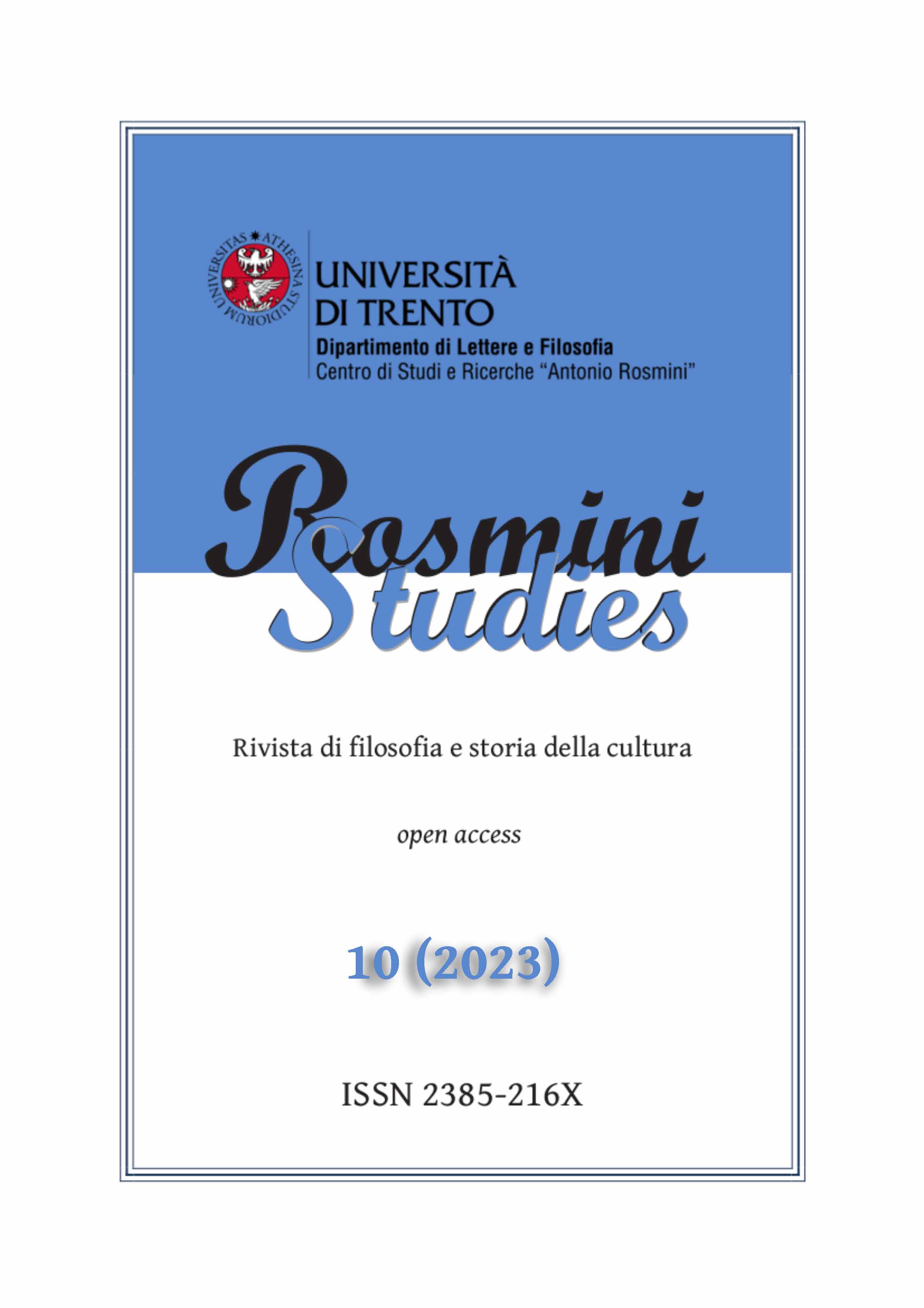Trascendenza del pensiero, impersonalità della coscienza. Hegel, Th. H. Green e la critica di A. Seth Pringle-Pattison
DOI:
https://doi.org/10.15168/2385-216X/2536Parole chiave:
Idealismo, Trascendenza, Immanenza, Averroismo, Thomas Hill Green, Andrew Seth Pringle-Pattison, HegelAbstract
Starting from an indication by Deleuze, according to which even transcendental philosophy would not arrive to an adequate concept of immanence, the paper tests this assumption by studying the way in which, in the history of idealism, thought was understood as “transcendent” with respect to individual thinking selves. This feature emerges with particular clarity in the path that goes from Hegel to the founder of British Idealism Thomas Hill Green – whose theory of eternal consciousness was criticized by another idealist philosopher, Andrew Seth Pringle-Pattison, as a modern form of Averroism.
##submission.downloads##
Pubblicato
Fascicolo
Sezione
Licenza
Copyright (c) 2023 Rosmini Studies

Questo lavoro è fornito con la licenza Creative Commons Attribuzione - Non commerciale - Non opere derivate 4.0 Internazionale.



